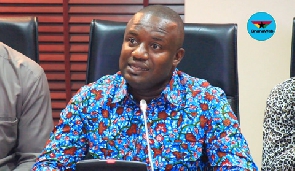Ghana and the European Union on Monday signed a 92-billion-cedi grant agreement for the financing of a rural water sanitation project in the Northern Region.
The Minister of Finance, Mr Yaw Osafo-Maafo, signed for Ghana while Mr Alessandro Mariani, Charge d'Affaires of the European Commission, signed on behalf of the European Union.
Under the project 25 large communities in the West Mamprusi, East and West Gonja Districts will benefit from a pipe distribution system with elevated reservoirs and standpipes.
Five hundred water points, made up of 425 bore holes and 50 wells fitted with solar hand pumps, will be built in addition to more than 2,000 sanitation facilities in the three districts to improve both water supply and sanitation.
The project, which is to begin in the second half of the year and last for four years, will enhance the rate of coverage of water supply to 53 per cent and sanitation to 30 per cent. About 210,000 people out of a total population of 576,000 will benefit.
Mr Osafo-Maafo lauded the strong relationship between the EU and Ghana and expressed the hope that such goodwill would be extended to help the country out of its difficulties.
He said the project tails in with government's main task to eliminate guinea worm through the provision of good drinking water in affected communities.
Mr Osafo-Maafo said the availability of good drinking will not only enhance the quality of life but also help to alleviate poverty among children and women who are the most vulnerable.
He assured the EU of transparency in procurement, contracting and the implementation of the project to obtain the maximum and achieve value for money.
Mr Mariani said increased access to water and sanitation facilities will reduce the prevalence of guinea worm and related water borne diseases and have a positive impact on the life of women and children who spend a lot of time looking for water.
"The improvement of the health condition and the time saved for other activities will definitely have a positive impact on reducing poverty in the selected districts," he said.
To sustain the project, Mr Mariani said, an intensive training and mobilisation campaign of the rural communities and district authorities is covered under the project.
The beneficiary communities are expected to contribute five per cent of the capital investment costs as well as form water and sanitation committee to collect fees for the maintenance of the facilities.
The Minister of Works and Housing, Mr Kwamena Bartels thanked the EU and assured him that in the next four years everything possible will be done to reduce guinea worm in the most endemic communities.
General News of Monday, 26 February 2001
Source: GNA
















